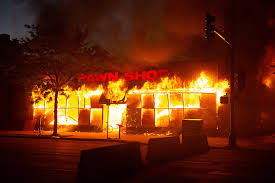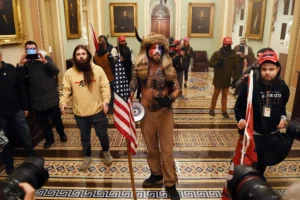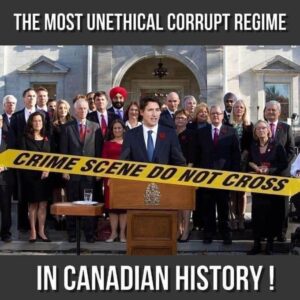“Those Who Would Give Up Essential Liberty, To Purchase A Little Temporary Safety, Deserve Neither Liberty Nor Safety” . . . Benjamin Franklin.
What is the Rule of Law?
We are told that we live in countries that follow the Rule of law. But what is the Rule of Law?
Here are a few definitions.
Accountability
The government as well as private actors are accountable under the law.Just Law
The law is clear, publicized, and stable and is applied evenly. It ensures human rights as well as property, contract, and procedural rights.Open Government
The processes by which the law is adopted, administered, adjudicated, and enforced are accessible, fair, and efficient.Accessible and Impartial Justice
Justice is delivered timely by competent, ethical, and independent representatives and neutrals who are accessible, have adequate resources, and reflect the makeup of the communities they serve.
But, at its core, the Rule of Law is a collection of ideas that govern how we all relate to each other. There are certain key principles contained in the Rule of Law, including:
The government enacts law in an open and transparent manner.
The law is clear and known, and it is applied equally to everyone.
The law will govern the actions of both government and private persons, and their relationship to each other.
The courts will apply the law independently of political or outside influence.
The next question: What is the origin of the LAW?
Laws are based on society’s ethics, are created and enforced by governments to mediate our relationships with each other, and to protect its citizens. Laws are codifications of certain ethical values meant to help regulate society, and also impact decision-making.
In Canada, the Constitution Act, 1982 recognized the Rule of Law, where the Canadian Charter of Rights and Freedoms begins with the following statement:
“Whereas Canada is founded upon principles that recognize the supremacy of God and the rule of law.
Section 15 of the Constitutional Act 1982
Equality Rights
Equality before and under law and equal protection and benefit of law
15 (1) Every individual is equal before and under the law and has the right to the equal protection and equal benefit of the law without discrimination and, in particular, without discrimination based on race, national or ethnic origin, colour, religion, sex, age or mental or physical disability.
America’s Founding Fathers chose the Judeo/Christian ethic to underpin her Constitution. I wrote about this in my book: Back to the Ethic:Reclaiming Western Values.
Our shared Rule of Law is based on the Judeo/Christian ethic which comes from the Jews who 3500 years ago received the word of God from Mt. Sinai. That word told us in no uncertain terms, that all life is sacred, all people are born with equal intrinsic value and that we have moral agency- we are commanded to choose – it’s not a suggestion. And we choose good or evil. We are also taught that we are not the object of fate, but the subject to our destiny – because we have the obligation to CHOOSE – right or wrong. There is no room in this ethic that underpins Canadian and American ethics and law, for victimology (also known as Critical Race Theory) – to be taught or practiced.
Did you know that the concept of the Supreme Court comes from the Bible? Moses’ father-in-law, Yitro, watched as the people kept coming to Moses for advice. It was overwhelming. Yitro suggested a court system.
Exodus 18:21:
Seek out from among all the people capable men who are god-fearing, trustworthy men who refuse bribes. Set these over them as officers of thousands, officers of hundreds, officers of fifties, and officers of tens. Let them sit as judges for the people at all times. Have them bring every major case to you, but let them decide every minor case themselves. Make it easier for yourself by letting them share the burden with you.
I, YHWH your God, led you out of Egypt, out of the house of bondage. (Exod 20:2)
Why does the Rule of Law matter?
Without the Rule of Law, you could be imprisoned without reason.
Without the Rule of Law, the government could seize your property. In Canada the Prime Minister had the accounts of members of the Trucker Convoy frozen. Pay attention to what is happening in our schools and in medicine. The state is interfering in the morals and values we, as parents give to our children; like the promotion of Drag Queens reading to our most vulnerable.
The Rule of Law matters because it seeks to treat all persons fairly and equally. Canadian courts strive to protect individual rights by enforcing the Rule of Law. The requirement that our courts follow the Rule of Law remains a fundamental principle of Canada’s democracy.
Without the rule of law we cannot hold our elected officials accountable.
Without the Rule of Law, a wealthy person could escape the consequences of intentionally injuring another person for no reason.
Take a look around you. Do you see the rule of law being implemented equally amongst all people? And what of our laws? Does the idea of diversity, inclusion and equity meet the requirements of the rule of law as outlined by experts past and present?
Have we lost the rule of law with the admission of people who follow laws that are not compatible with Western Culture ethics, a branch of philosophy that deals with identifying, defending and recommending concepts of right and wrong behaviour? Or our ethos; a term that is used to describe principal beliefs or ideals that form the basis of a community, nation, or ideology?
How can there be the Rule of Law in a democracy when the elected leaders break the law? Does the Biden Family ring a bell? How about the treatment of American citizens protesting on January 6, what they believed to be a corrupt election compared to the treatment of protesters in the summer of 2020?


And what about Ray Epps?
The treatment of the J6 prisoners is legal abuse. The judges and prosecutors seek maximum punishments for minor crimes, and the reports of the treatment in jail are shocking. The treatment pushes the edge of permissibility, and many will say that the treatment is unconstitutional and illegal. Their lives have been plundered, while the friends of insiders who participated in riots in the summer of 2020 are mostly untouched.
And then we have government interference in free speech.
Now let’s take a look at Canada’s Prime Minister, Justin Trudeau.
He has broken a litany of laws, rules, and ethics.
After the October election, 2015, Justin Trudeau told the New York Times:
“There is no core identity, no mainstream in Canada,” and consequently that “makes us the first post-national state.”
I don’t recall voting for this change from our Judeo/Christian values.
Our Prime Minister referred to non-vaccinated people as racist and misogynists and asked if these people should be tolerated. What was he planning to do with these people if it was decided that they should not be tolerated?
Our Prime Minister stated that the truckers in the Freedom Convoy had “unacceptable views.” What views were unacceptable? When did organizing a mass grassroots, nonviolent protest become unacceptable? When did sharing differing views become unacceptable? When did Freedom of Speech lose its freedom?
Our Prime Minister has been called to account by the Romanian Member of European Parliament (MEP) Cristian at the European Parliament in Brussels who said, “The prime minister of Canada, the way he’s behaving right now – he’s exactly like a tyrant, like a dictator. He’s like Ceaușescu in Romania.”
Why can WE not call him to account under the Rule of Law?
Don’t forget his attack on Jody Wilson-Raybould, who was demoted because Trudeau didn’t like her investigation into Montreal-based SNC-Lavalin. Then he unethically accepted a trip to the Aga Khan’s island at a time when the Aga Khan was discussing funding for projects with Trudeau’s government. And how about that We Charity unethical, immoral, illegal moment?
Take a look at May Ng, the latest member of the Trudeau government to seemingly break the law. Trade Minister Mary Ng will not repay the cost of contracts improperly awarded to a personal friend and CBC pundit. The payments for media coaching were the equivalent of more than $2,800 an hour. Why not? Someone not in the government would be taken to court.
The Rule of Law in Canada should allow us to impeach a failed, immoral, unethical corrupt Prime Minister who breaks the rule of law. Sadly, we have learned from this Government that we cannot trust the Members of Parliament to act on the best interests of the people when a deal is made between two minority parties to act as one rather than one party prepared to take down the government for failing its moral and legal obligations. In March 2022, Prime Minister Justin Trudeau said the Liberals had struck a deal with the federal NDP to govern until 2025 in a decision he says will offer “stability” to Canadians in uncertain times.
Stability or tyranny?
The priority of the lawgiver and thus of the legal system is freedom. Our leaders are to serve us; not to rule us. And that is the primary purpose of the Rule of Law: to protect and defend the citizens from abuse by government.

From the Ethics of the Fathers: “Rabbi Tarfon used to say, it is not incumbent upon you to complete the task, but you are not exempt from undertaking it.”


